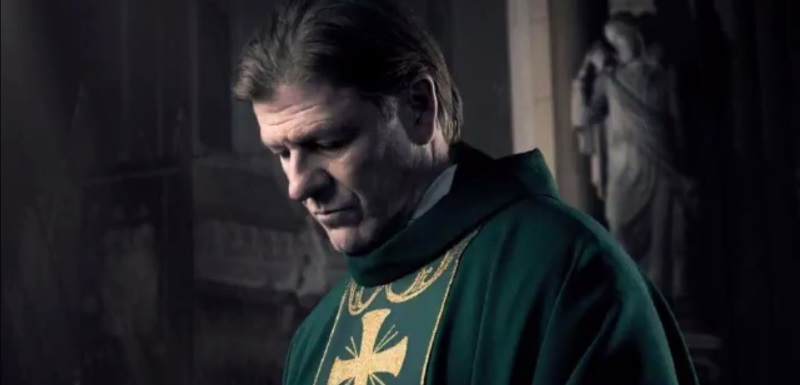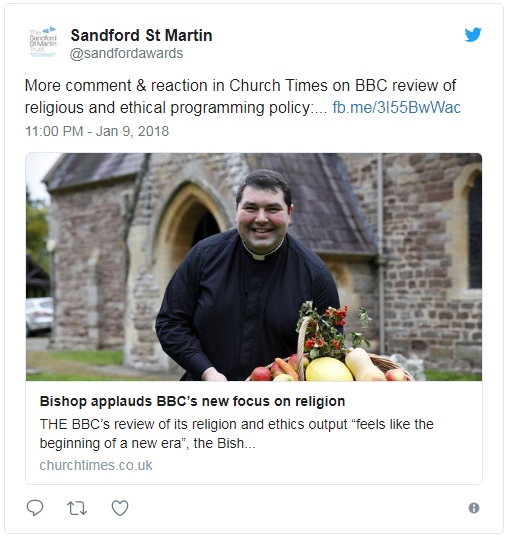Opinion | Wednesday, 10th January 2018
BBC’s boost to religious programming is a good idea – no matter what humanists say
Dr Lloyd Strickland discusses the corporation's new commitment to faith shows

Originally published on The Conversation
by Dr Lloyd Strickland, Reader in Philosophy
In the week before Christmas, the BBC announced that it is to air more religious programming after conducting its religion and ethics review, which followed a set of new regulations laid down by Ofcom in September 2017.
Predictably, the BBC’s announcement was greeted enthusiastically by religious groups, being applauded by a Church of England bishop and welcomed by Jewish groups – though whether the increased coverage will be as much as they expect is another matter.
Ofcom stated that BBC One and Two together have to broadcast 115 hours of religious programmes per year, which amounts to fewer than five full days of religious content across the two channels over the course of 12 months. And whether the increased coverage will be what religious groups themselves want to see is also uncertain, since the broadcaster is not seeking to deviate from its policy of impartiality – so it won’t be actively promoting any faith or belief system.
That notwithstanding, the BBC’s announcement should be welcomed for two reasons. First, it will make the BBC more relevant to its audience. While 53% of adults in the UK say they have no religion, the institution still has a responsibility to the other 47% – which, of course, pays precisely the same license fee as the non-religious majority.
What is more, the BBC is not intending simply to focus on the major world religions, but also to cater to those who are not religious but have spiritual beliefs. Such people are easily overlooked because they don’t fit into a neat box the way members of an organised religion do. Also, despite the howls of protest by humanists at the BBC’s announcement, the broadcaster’s religion and ethics review makes it clear that it will be seeking to reflect the beliefs of atheists and humanists, too, though how it intends to serve them is not clear at this stage.
Religious literacy
The second reason for welcoming the BBC’s announcement is that an increase in religious programming will help to promote greater religious literacy. This is desirable given that misunderstandings about religion lie behind a good number of the world’s problems. The recent increase in anti-Semitism, Islamaphobia, and sectarianism no doubt has multiple and complex causes, but poor religious literacy is surely one of them.
As one journalist noted: “A failure to understand religion is a failure to understand humanity and culture.” Anything that tackles this is to be welcomed.

The BBC is there to inform, educate, and entertain – and, as one of the key providers of information, education and entertainment in the UK, it has an important role to play in combating misunderstandings about religions.
Not just more Songs of Praise
So the BBC’s commitment to increased coverage of religion is arguably a good thing, at least in principle. But the devil is in the detail – and how the BBC intends to increase coverage of religion in its programming will be crucial. As a recent headline in the Spectator cautioned, the BBC’s religious programming shake-up could easily make things worse, for example if it simply meant twice as much Songs of Praise.
But this is not the sort of increased coverage the BBC has in mind. The broadcaster has released some details about what we can expect, for example there will be more airtime devoted to non-Christian religious festivals, programmes about the world’s sacred sites and a Radio 4 series on morality in the 21st century.
We can also expect characters in mainstream programmes dealing with religious issues, as we saw last year in the series Broken featuring Sean Bean as a brooding and troubled Roman Catholic priest. And perhaps most notably, the BBC will designate 2019 “a year of belief” marked by specially-commissioned programmes and documentaries that examine “how people make judgements about the big decisions in their lives and where they get their moral values from”.
But of course there is a big difference between the BBC simply increasing its coverage of religion and actually enhancing it, which is what faith groups themselves want to see. Certainly, the BBC has sometimes been insensitive in its handling of religious matters" for example, in 2012 it described the Hindu festival of Holi as a “filthy festival” – and the institution will want to avoid a repeat of anything similar happening again.
To achieve this, the BBC intends to revamp its training programmes for its journalists to promote religious literacy and reduce unconscious bias, create a global team of reporters with specific religious expertise, and to have more involvement with stakeholders such as faith and secular belief groups. It remains to be seen whether all these measures will lead to deeper, more informative, and more sensitive output, but the intention at least is praiseworthy.




